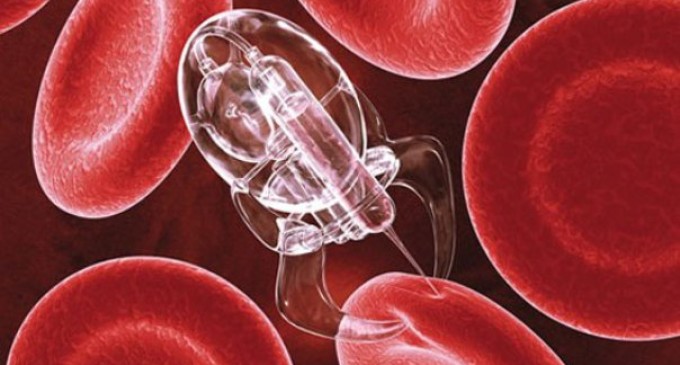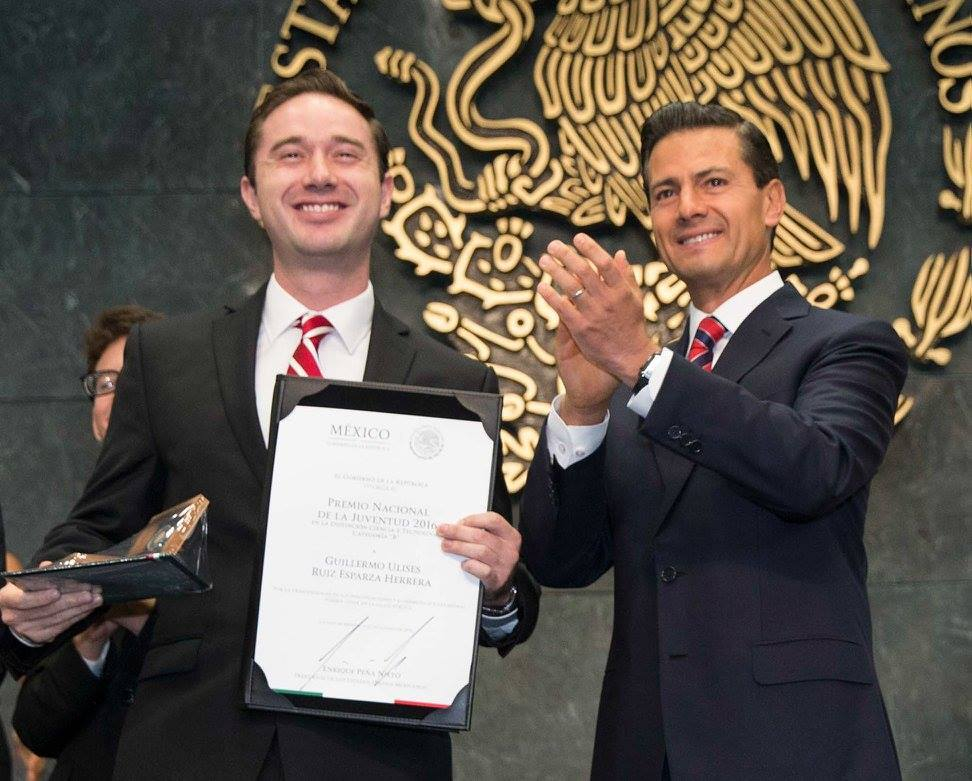

Nanotechnology to treat human heart.
By Aleyda Villavicencio
When Ulises Ruiz-Esparza left his hometown in Aguascalientes, Mexico, to study medicine, he did not imagine that less than a decade later his name would be written in the annals of medicine. His doctoral research at the Houston Methodist Hospital brought him international attention and MIT’s recognition as one of the top innovators under the age of 35. He is currently the youngest of five leaders at the Biomaterials Innovation Research Center at the Harvard-MIT Division of Health Sciences and Technology.
“When I picked nanotechnology in cardiovascular applications, few people believed it would work,” said Ruiz-Esparza, 28.
Nanoparticles have been used for many years in certain cancer treatments, delivering chemotherapy to the tumor without affecting other organs, Ruiz-Esparza explained. But by the time he completed his research, they had never been used in pathologies such as heart failure.
During his doctorate, Ruiz-Esparza designed a nanoparticle that instead of reaching a tumor could reach the heart. Now, the use of nanotechnology in cardiovascular applications opens an avenue to deliver different types of drugs, or genetic information to the heart to treat diseases such as heart failure, or to reverse its aging process.
“It will be like inserting a USB, with very specific information to hack the software of the heart and rejuvenate it,” he said.
Looking back at the time Ruiz-Esparza applied to medical school, his father, Guillermo, said he would never forget that in his letter “my son wrote that he wanted to contribute something more than what was written in medicine, and that’s what he’s doing.”
When her mother, Leticia Herrera, speaks of the moment the oldest of her three children moved out of the house her voice breaks.
“It was hard to accept the idea that his success meant that I would have to let him go,” she said. “But my husband always believed Ulises had the capability to do great things, and that he had to leave the house to reach his full potential.”
Last year Ruiz-Esparza moved to Cambridge to continue his research and plans to apply to the internal medicine residency program, at Harvard Medical School, and later on start his fellowship in cardiology.
He explains that his interest in cardiovascular treatment comes from a reason that is deeper and more personal than the desire to pursue something groundbreaking. Already a medicine student and visiting home, Ruiz-Esparza faced his grandfather’s death of a heart attack.
“I was there when he died,” he said. “Not being able to help him marked me very deeply, so much it motivated me to focus in cardiovascular treatments when I did my doctorate.”
His family plays a very important role in his life, Ruiz-Esparza said, “My most remarkable childhood memories are those where the whole ‘clan’ was together at my grandparent’s vacation home.”
He relaxes his posture when he speaks of his family and his younger years. When he goes back in time, Ruiz-Esparza seems to have a clear idea of where his life would have gone if he did not go for med school.
“In reality, I’m nothing but a frustrated soccer player,” he said with a smile as he laid back in his chair.
He confessed liking soccer so much he considered it a possible career when he was younger. He has played all his life, and still does in small tournaments with his lab peers, in his spare time.
He also speaks with enjoyment of the rock band he formed with his high school friends where he played the bass, or the guitar, and sometimes performed as the lead singer. His mother remembers that during graduation, he surprised the whole family as part of the show. “Suddenly, we saw him there, on stage singing in front of almost 1000 people!” she said.
Ruiz-Esparza describes himself as an average schoolboy in his early years. “I wasn’t always a straight A’s kind of student,” he said. “In fact, these days, when I’m invited to conferences, or even here with my students, I always tell them that being clever is more important than always getting an ‘A’.”
The first year of medical school was particularly challenging, he said. He struggled with some of his classes and at times, he said, he felt totally out of place. But he teamed up with a couple of friends to form a study group and his grades quickly improved.
“Failing in med school is the worst thing that can happen to you,” said Ruiz-Esparza. “Professors and peers look at you as if you will go through life killing people instead of saving them.”
A recurrent character in his conversation, and someone he repeatedly mentions as someone who significantly influenced his career, is Dr. Guillermo Torre, former head of the Heart Failure Program, at the Houston Methodist Hospital.
“[Dr. Torre] is my mentor and a huge inspiration,” said Ruiz-Esparza. “After seeing his practice, his research, and level of commitment, I thought to myself, I want to be like him some day.”
That inspiration moved Ruiz-Esparza to create a joint program with his alma mater, the Monterrey Institute of Technology, to bring undergrad students in Mexico to the Harvard-MIT laboratory, so they can experience doing research in a world-class environment.
He is convinced that this opportunity can open the minds of other young students to possibilities that otherwise they may not think possible.
“When I met doctor Ruiz-Esparza, the first thing that came to mind was that he was very young,” said Sofia Jimenez, 22, undergraduate student of biotechnology engineering from Guadalajara. “But I think that’s why he is very patient with us. He dedicates us time and is always telling us that age should not determine the significance of our ideas.”

Dr. Guillermo Ulises Ruiz-Esparza receiving the National Youth Award in Science and Technology 2016.
Last year Ruiz-Esparza received the National Youth Award in Science and Technology, from the Mexican president Enrique Pena Nieto, and said a reporter told him in an interview that he was part of the country’s brain drain.
Ruiz-Esparza responded that he is trying to grow the chain of knowledge by bringing Mexican students to work with him in Cambridge, and is working in several projects with doctors and scientists in Mexico all the time.
Confronted with the possibility of having to return to Mexico, Ruiz-Esparza explains that it would mean forgetting about his research entirely. “We don’t have the necessary equipment over there to continue developing the cutting edge research we are doing here at Harvard-MIT,” he said.
“My ultimate goal is to make every possible effort so that one day, what we do here in Boston, or Houston, can be replicated in Monterrey, or anywhere else in Mexico. That’s ultimately my biggest motivation; training and collaborating with Mexican scientists.”
About Me: https://about.me/aleyda.villavicencio
Twitter: @aleydag
FaceBook: Aleyda Villavicencio
Blog: http://milunitatucumana.blogspot.com








